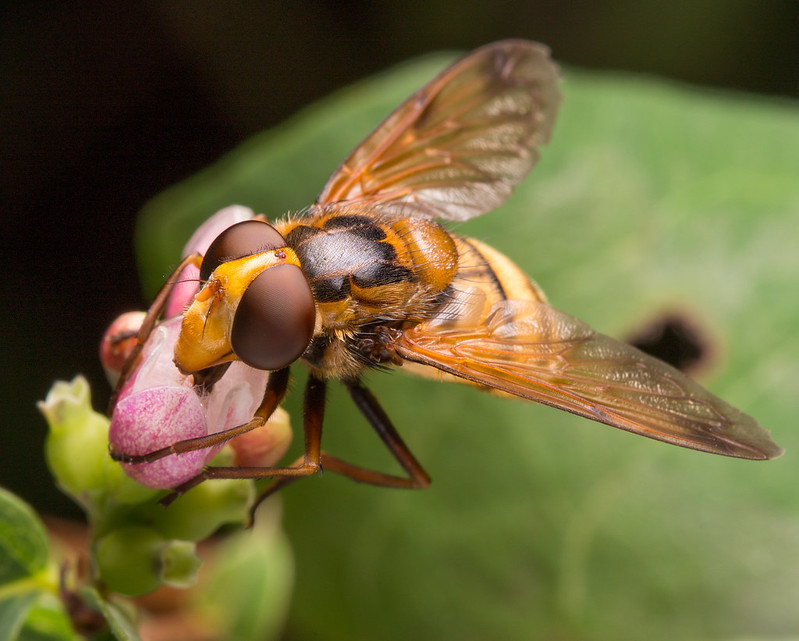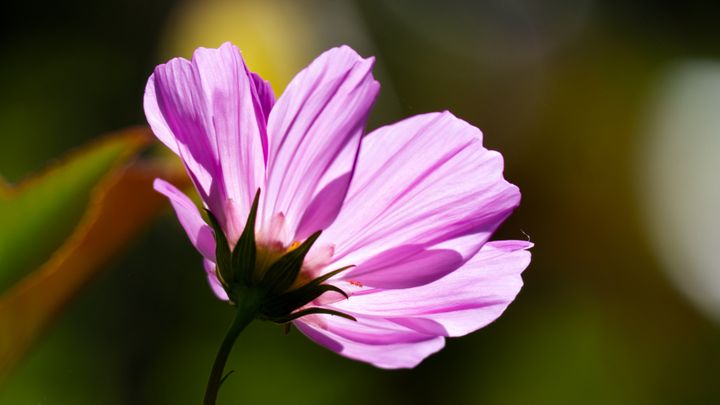Macro Photography Question
Discussion
My 10 year old lad is keen to mess around with macro but in true 10 year old lad style this may be a flash in the pan......
I've a Nikon D7000 he could use for this so I'm guessing investing in some macro extension tubes is the lowest cost entry point.
Looking on Amazon these range from £20 to about £100 (Kenco) - given they are basically spacers are there any issues with going for the lower end of the market?
On a more general point for youngsters getting into "proper photography" what are the thoughts these days on getting into this?
I'm tempted to buy him a second hand Nikon DSLR + kit lens with decent live view so I can teach him the ropes....but conscious that the camera world has moved on since I was last really into it so maybe there's a better place to start?
I've a Nikon D7000 he could use for this so I'm guessing investing in some macro extension tubes is the lowest cost entry point.
Looking on Amazon these range from £20 to about £100 (Kenco) - given they are basically spacers are there any issues with going for the lower end of the market?
On a more general point for youngsters getting into "proper photography" what are the thoughts these days on getting into this?
I'm tempted to buy him a second hand Nikon DSLR + kit lens with decent live view so I can teach him the ropes....but conscious that the camera world has moved on since I was last really into it so maybe there's a better place to start?
Cheap solution
Buy a set of close up lenses adapters, just get the right thread size for your lens
Example (58mm set YMMV) set here: https://www.amazon.co.uk/Andoer%C2%AE-Close-Up-Fil...
Buy a set of close up lenses adapters, just get the right thread size for your lens
Example (58mm set YMMV) set here: https://www.amazon.co.uk/Andoer%C2%AE-Close-Up-Fil...
towser said:
On a more general point for youngsters getting into "proper photography" what are the thoughts these days on getting into this?
I'm tempted to buy him a second hand Nikon DSLR + kit lens with decent live view so I can teach him the ropes....but conscious that the camera world has moved on since I was last really into it so maybe there's a better place to start?
Camera tech has indeed moved on and continues to do so. But the basics remain exactly the same as they always have.I'm tempted to buy him a second hand Nikon DSLR + kit lens with decent live view so I can teach him the ropes....but conscious that the camera world has moved on since I was last really into it so maybe there's a better place to start?
Any half decent second hand DSLR will be a good starting point as it offers the opportunity to learn about exposure, composition and the differences between lenses. Plenty always on the market. The one advice i'd give is to take him to a camera shop. They're one of the last bastions of proper retail professionalisms, almost always staffed by enthusiasts who know what they're talking about and keen to talk about it.
And if you can find a few quid down the back of the sofa, I'd recommend a dedicated Macro lens - something in the 90mm - 105mm range. They're not that pricey!.
Autofocus often doesn't matter for macro, I've generally had better results from manual focus.
Extension tubes are a cheap relatively straightforward way to get started, another way (how I first started macro) was using an adaptor to reverse mount a 50mm lens. Gave some good results with time and patience but trickier to work with as you have practically no focus adjustment, you just move the camera.
Whatever lens / adaptor option you go for, an external flash helps a lot - an on-board flash can often give quite harsh lighting and natural light isn't always enough - the magnification effectively loses a lot of light compared to non-macro photography, and you have to stop down to very small apertures for depth of field.
A proper macro lens is obviously the easiest to use, but much more cost - maybe start with cheap extension tubes to see if your kid likes it as much as they think, and keep an eye out for a second hand macro lens to upgrade to later.
Extension tubes are a cheap relatively straightforward way to get started, another way (how I first started macro) was using an adaptor to reverse mount a 50mm lens. Gave some good results with time and patience but trickier to work with as you have practically no focus adjustment, you just move the camera.
Whatever lens / adaptor option you go for, an external flash helps a lot - an on-board flash can often give quite harsh lighting and natural light isn't always enough - the magnification effectively loses a lot of light compared to non-macro photography, and you have to stop down to very small apertures for depth of field.
A proper macro lens is obviously the easiest to use, but much more cost - maybe start with cheap extension tubes to see if your kid likes it as much as they think, and keep an eye out for a second hand macro lens to upgrade to later.
spookly said:
Cheapest adaptors/tubes often won't provide autofocus.
If affordable, then for macro ideally you want a reasonable macro lens, tripod and a focus rail.
Agree on the first point - you need to look for auto extension tubes, which have the electrical contacts to enable the lens and camera to communicate - at least for aperture control/metering (I use Kenko ones which are decent quality and the fit to the camera and lens is secure). Quite often when doing macro stuff in the garden, I find autofocus isn't a great help, and instead use manual focus and move the camera back and forth to achieve sharp focus.If affordable, then for macro ideally you want a reasonable macro lens, tripod and a focus rail.
As to the second point, yes these are all useful, but it depends to a large degree on what sort of macro photography he's interested in. A tripod and focus rail are essential if he's looking to photograph stationary objects and wants to explore focus stacking. If, on the other hand, he wants to try chasing live insects around the back garden, then they are less important.
As has been mentioned, a macro lens would be great, but just to have a go at macro, a set of extension tubes is a good and relatively cheap way to get started.
Finally, and especially for insects, using a flash can be very helpful. The D7000 I believe has a built in flash, and several people have built Heath-Robinson type contraptions from loo rolls and tin foil to direct the flash onto the subject, which is useful, as when close focussing, the lens can often get in the way and cast a shadow from the built-in flash. It also helps to concentrate the flash to maximise the power available.
A separate flash unit or units would be better than the built-in flash as they will deliver more power, enabling smaller apertures, although even with these, it's helpful to use some form of diffuser on them to soften the light - I've used metal fast food containers with white translucent plastic (the sort of thing new tvs come wrapped in) with reasonable results in the past:
 Untitled by conradsphotos, on Flickr
Untitled by conradsphotos, on Flickr fly_c by conradsphotos, on Flickr
fly_c by conradsphotos, on FlickrEdited by C n C on Wednesday 23 October 20:54
I've used extension tubes for years. You lose an f.stop or two but they fit all of my lenses. I had close up lenses, but they fitted just the one lens. My tubes were cheap, but not the cheapest, and retained autofocus, although I tend to use manual focus for macro. I've used them on my 200 - 600 zoom. Below is a photo I took with this lens +extension tube. Hand-held as well.

When I'm outdoors, I prefer using a zoom plus a tube for close focus, but in what I call my studio, but everyone else calls my garage, I prefer using my f2.8 85mm macro.
When I'm outdoors, I prefer using a zoom plus a tube for close focus, but in what I call my studio, but everyone else calls my garage, I prefer using my f2.8 85mm macro.
I don't do much macro photography, but this is a caterpillar I spotted in the garden the other week - taken on the kit lens for my camera with an extension tube (a cheap third party one - JJC brand).

Knot Grass Moth Caterpillar by Lewis Craik, on Flickr
With regards to kids getting in to photography, I looked at a cheap camera for my son, that would have shared the same lenses as my camera. But to get anything decent it wasn't going to be cheap, so I applied some man maths, and got myself a new camera, and let my son use the old one. After some initial interest in the summer, he hasn't done much since, so I need to encourage him a bit more, but at least I got a new camera out of it...

Knot Grass Moth Caterpillar by Lewis Craik, on Flickr
With regards to kids getting in to photography, I looked at a cheap camera for my son, that would have shared the same lenses as my camera. But to get anything decent it wasn't going to be cheap, so I applied some man maths, and got myself a new camera, and let my son use the old one. After some initial interest in the summer, he hasn't done much since, so I need to encourage him a bit more, but at least I got a new camera out of it...
Gassing Station | Photography & Video | Top of Page | What's New | My Stuff



